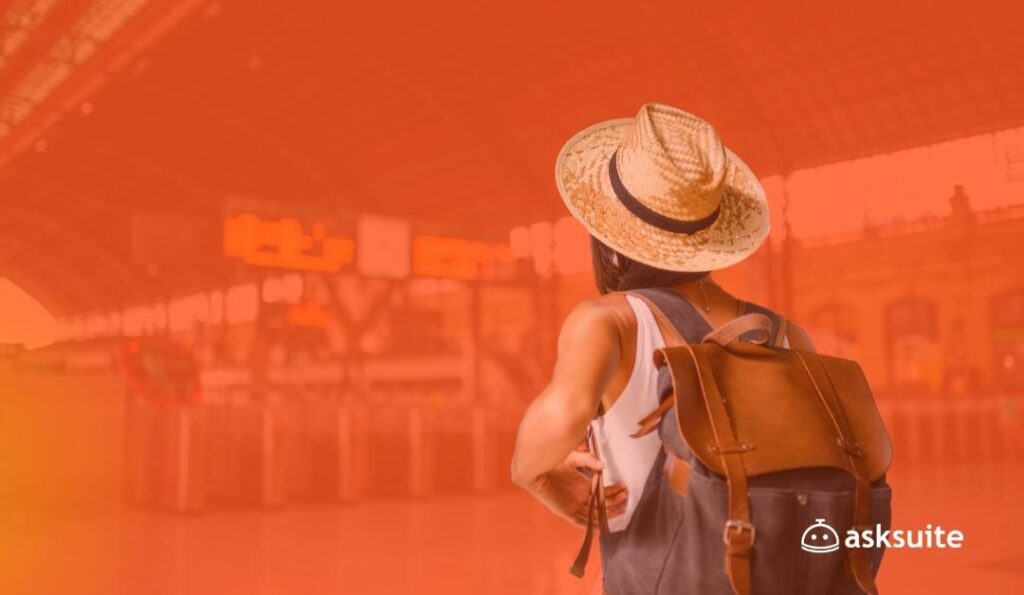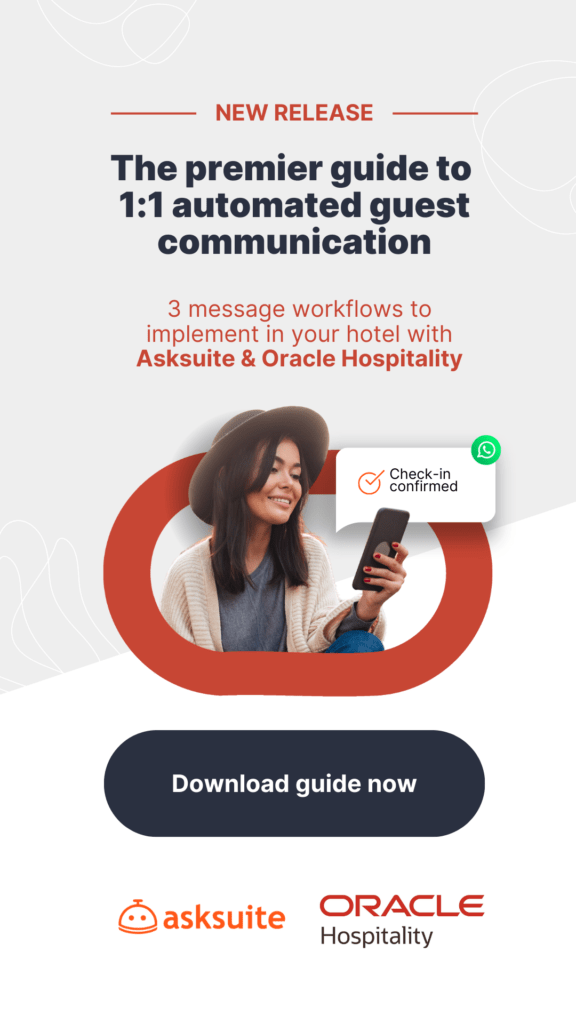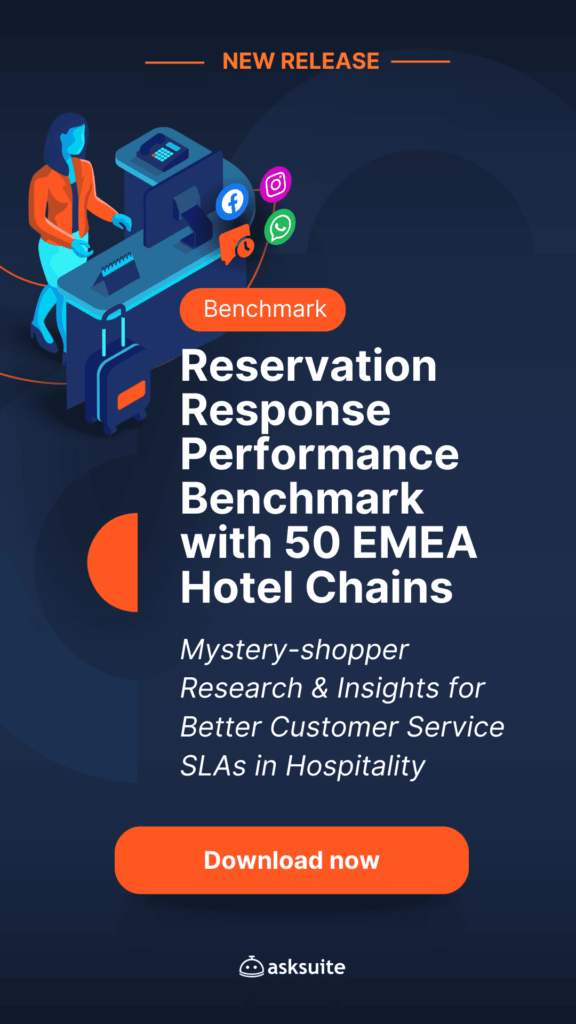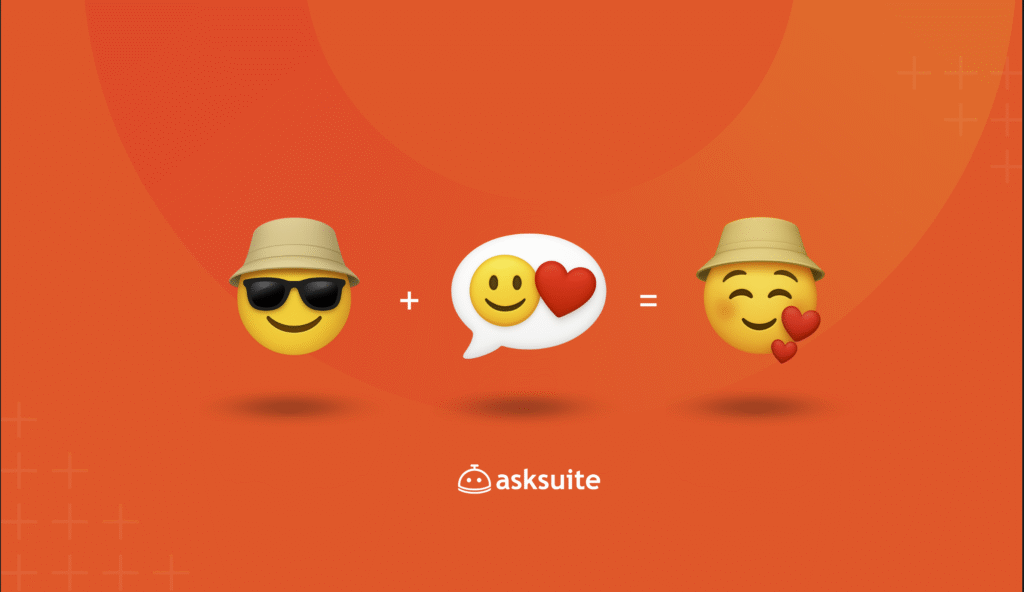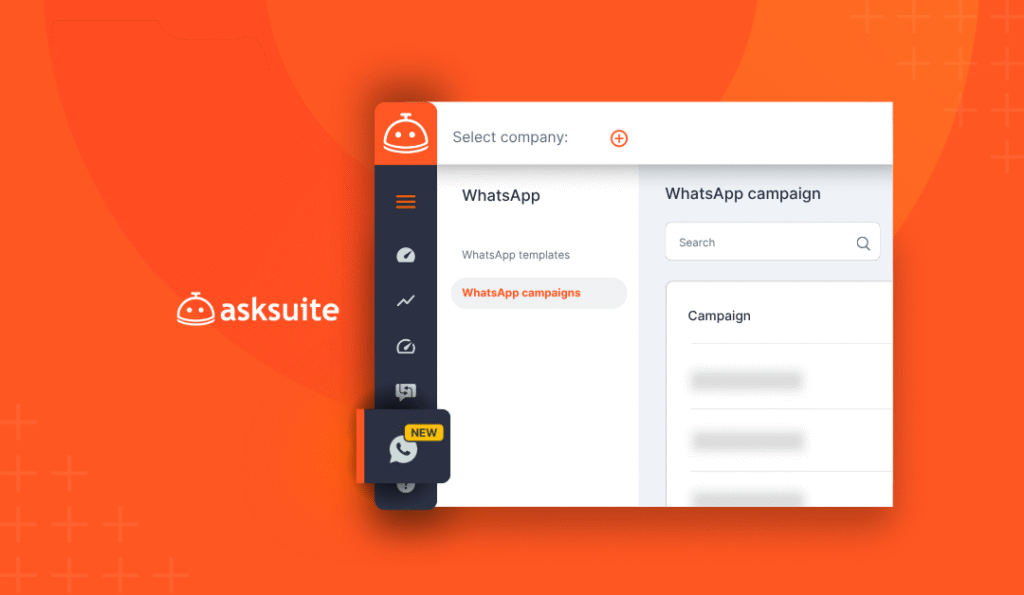Learn the most relevant, and practical strategies to boost your hotel’s direct bookings by enhancing the guest experience and using the right technology from the beginning of the guests’ journey
As global demand for hospitality grows, hoteliers are looking for effective strategies to ride the wave and capitalize on this strong interest in travel. To achieve this, it’s crucial to develop strategies that focus on boosting your hotel’s direct bookings, which can increase profits, strengthen relationships with guests, and enhance service from the very first interaction.
Hoteliers, here are some important questions to consider:
- Do you understand the unique benefits of direct bookings?
- How can you drive direct bookings effectively at your hotel?
- What channels can support such a strategy?
- How important is a smooth digital experience?
In Asksuite’s ultimate guide, you’ll learn all about that. Are you ready for this content? Let’s delve deeper!
What are hotel direct bookings?
Direct bookings are reservations made by guests directly with your hotel, without intermediaries. In this model, no third-party systems or agencies are involved.
These bookings can be made via your hotel’s website, WhatsApp, phone, email, social media, or even at the front desk.
Want to learn more about automations that increase your hotel’s direct booking revenue? Get full access to Asksuite’s exclusive guide now!
Why are direct bookings important for your hotel?
Direct bookings offer numerous advantages for your hotel. Of course, the first one is about revenue growth possibilities. Along with it, you can have greater control over guest interactions.
From the first touch point, direct bookings allow you to:
- Operate with better profit margins
- Follow your hotel’s policies more closely
- Monitor communication effectively
- Track sales and marketing efforts more accurately
- Make timely offers during the guest journey
- Build guest loyalty from day one
It’s essential to create a strategy that balances both direct and indirect bookings while understanding the significant potential of direct channels.
What’s the difference between direct and indirect bookings?
Direct bookings are made without intermediaries, while indirect bookings involve third-party systems like OTAs or travel agents. In a direct booking, the guest only interacts with the hotel. With an indirect booking, the process involves the traveler, a third-party, and the hotel.
Both types of bookings play a role in your hotel’s strategy. It’s essential to understand each model’s function to create a distribution plan that maximizes profitability.
Direct Bookings
Direct bookings allow hotels to engage with guests while avoiding third-party commissions and nurturing the guest relationship. To drive more direct bookings, you’ll need:
- A booking engine on your website to process reservations;
- Marketing efforts to attract guests to communication channels;
- Popular channels that encourage potential guests to book directly.
Benefits:
- Builds guest relationships;
- Maximizes upselling before check-in;
- Encourages repeat bookings;
- Avoids third-party fees;
- Increases profit margins.
Challenges:
- Requires technical know-how in digital marketing – that can easily be solved by a specialist of your choice.
OTAs
OTAs help hotels gain exposure among global travelers. However, they come with drawbacks like commission fees and limited control over guest interactions.
Benefits:
- Increases visibility to global travelers;
- Promotes brand awareness for your hotel.
Challenges:
- Requires commission rates;
- Lacks guest information;
- Reduces control over the guest experience.
Metasearch
Metasearch platforms let consumers compare prices across multiple websites. Hotels bid for ad placement and only pay when a customer clicks. Unlike OTAs, metasearch uses a cost-per-click (CPC) model rather than a commission-based one.
Benefits:
- Increases visibility during search;
- Directs travelers to your website;
- Scales demand with performance-based costs.
Challenges:
- Involves a competitive bidding environment;
- Requires close monitoring to avoid overspending.
What are the top direct booking strategies?
To boost direct bookings, focus on actions that engage guests via seamless communication channels. The most critical strategies include:
- Promoting direct interactions with potential guests;
- Offering perks at the right moment;
- Building loyalty after each stay.
To put these strategies into action, you must be aware of how technology helps increase direct bookings. The very first move your hotel must consider is implementing an AI-driven chatbot to easily handle travelers’ demands across various channels.
Here are the most important improvements an AI Reservation Agent will provide to your hotel:
- 24/7 top-notch interactions with travelers;
- Streamlined integration with booking engines;
- Personalized responses supported by AI;
- Reduced human intervention for FAQs.
In addition, it’s essential to rely on an omnichannel platform. Centralizing all interactions is the key to effective communication at your hotel. Imagine your team managing multiple channels simultaneously, switching between tabs without access to each traveler’s chat history—it would be overwhelming, right?
An omnichannel platform lightens the load by providing a simplified overview, enabling human intervention when necessary, and ensuring agents have access to past conversations. All this helps maintain a smooth communication experience throughout the guest journey.
Now, let’s explore the most important channels to drive more direct bookings!
Which channels drive direct bookings to your hotel?
Nowadays, travelers rely heavily on digital platforms when planning their trips. From social media to research on the internet, these channels play an important role in shaping decisions.
Here, we take a closer look at some powerful communication channels that generate revenue via direct bookings. Is your hotel present on all of them?
Hotel Website
Your website is often the first interaction potential guests have with your hotel. Be sure it provides an excellent user experience, with visuals and content tailored to your target audience.
An AI-powered Reservation Agent can speed up the reservation process when integrated with your booking engine, ensuring a seamless experience and optimizing conversion rates.
WhatsApp is one of the top communication tools, with over 2 billion users across more than 180 countries. Its significance as a sales and communication channel in the hospitality industry is undeniable.
Here are some best practices:
- Follow up with travelers who haven’t finalized their booking;
- Send personalized offers to guests throughout their journey;
- Engage post-stay guests to leave reviews for your hotel;
- Build loyalty with exclusive vouchers after their stay.
Did you know all these actions can be automated, freeing your team from repetitive tasks like sending the same message repeatedly?
AskFlow, Asksuite’s newest product, is coming to automate personalized message flows and increase your hotel’s revenue!
Want to learn more about this innovative solution? Talk to one of our specialists today!
Social media
Instagram, Facebook and other social media platforms allow you to showcase your hotel and engage with potential guests. What’s more, their messaging apps are also popular among travelers.
When hiring an AI Reservation Agent, be sure it connects with social media chats. In this way, messages exchanged on these channels can also be handled by well-trained AI and centralized on the omnichannel platform.
Email Marketing
Email remains a valuable tool for promoting offers and maintaining relationships with guests. When combined with other apps, such as WhatsApp, you can maximize your results even more.
These are great opportunities to enhance direct bookings to new and returning guests. Measure each one to learn which alternatives fit best for your hotel and make the most of them!
How to increase direct bookings on your hotel’s website?
There are simple, practical, and effective strategies to boost direct bookings at your hotel. All focus on being readily available to travelers and providing an exceptional guest experience from day one.
If you’re unsure where to start or how to enhance the experience you offer, we’ve listed some useful tips to help take your direct bookings to a whole new level.
Be available on digital channels
As we’ve mentioned before, being accessible on key channels is crucial, as travelers prefer to reach out on their favorite communication channel. Here are some tools to elevate your interactions with potential guests:
- Respond to travelers where the chat starts.
- Use tech to manage channel switching seamlessly.
- Provide high-quality responses powered by AI 24/7.
- Intervene with your human agents when necessary.
Be fast and efficient
These assertive actions help prevent potential guests from turning to OTAs in search of quick answers that could easily be managed by your own AI Reservation Agent.
With an omnichannel platform like Asksuite, you can centralize all travelers’ interactions on a single screen, making it easier and faster to respond without constantly switching tabs to check for new messages.
You’ll work smarter, and your guests will receive more efficient assistance—leaving them little time to explore other options.
Capture potential guests’ information
Not everyone who contacts your hotel will book immediately; many travelers are still in the planning phase. By leveraging technology, you can gather valuable information and develop targeted marketing campaigns to engage potential guests and highlight the benefits of booking directly with your hotel.
For example, an AI-driven chatbot can be set to collect travelers’ names, emails, and phone numbers during the price quote process. Your team can then create a strategy to follow up on their preferred channels, sending personalized emails or WhatsApp campaigns.
Combine human agents and tech tools
To maximize direct bookings and deliver an outstanding guest experience, blend human assistance with tech solutions. Simple, repetitive tasks often divert human agents from more important duties, like negotiating or handling revenue-generating activities.
Automating tasks such as answering FAQs, sending follow-ups, and helping travelers ready to book will free your staff to focus on more strategic activities, while also enhancing the guest experience.
Segment customers and assign the right agent
Customer service requests come in many forms, from inquiries about hotel policies to room quotes and group packages. Ensure you assign the right team member to take care of each specific request. By matching the best agent with the demands at hand, you can deliver a more personalized service and increase the chances of closing the deal.
A well-prepared staff leads to satisfied guests and higher revenue.
Train your sales and reservation team
Delivering an outstanding guest experience aligned with your hotel’s standards is only possible through proper training. Ensuring your entire staff is on the same page when interacting with travelers will drive your business toward excellence.
Another important point that can sometimes be overlooked is the effective use of tech tools, such as an AI Reservation Agent and an omnichannel platform. Make sure to provide technical training on these solutions so your team can fully leverage them and deliver even better performance.
When everyone understands the best practices, your reservation agents are more likely to perform at a high level, ultimately bringing in more direct bookings for your hotel.
Can you see how a well-structured guest experience and a solid channel strategy can help drive more direct bookings?
If you’d like to learn how Asksuite can simplify communication between your hotel and travelers, talk to one of our specialists today!
This blog post was originally written on November 4, 2021 by Jéssica Lipinski and updated on November 1, 2024 by Asksuite team.
